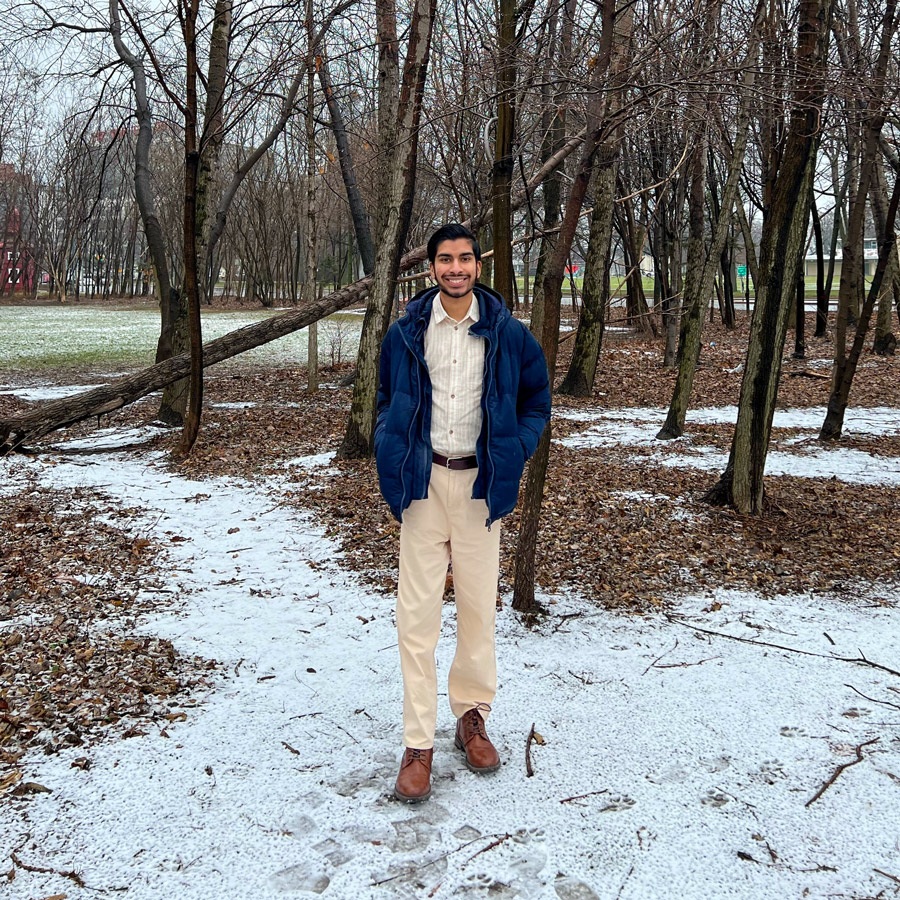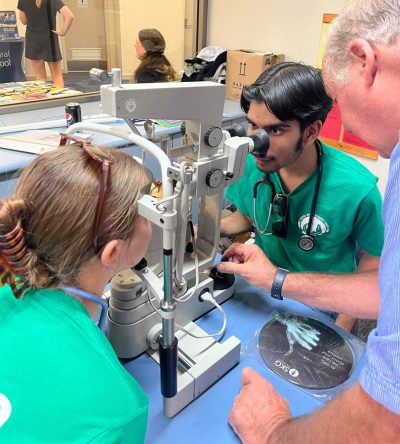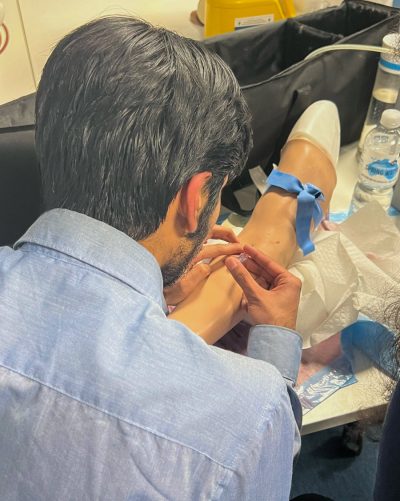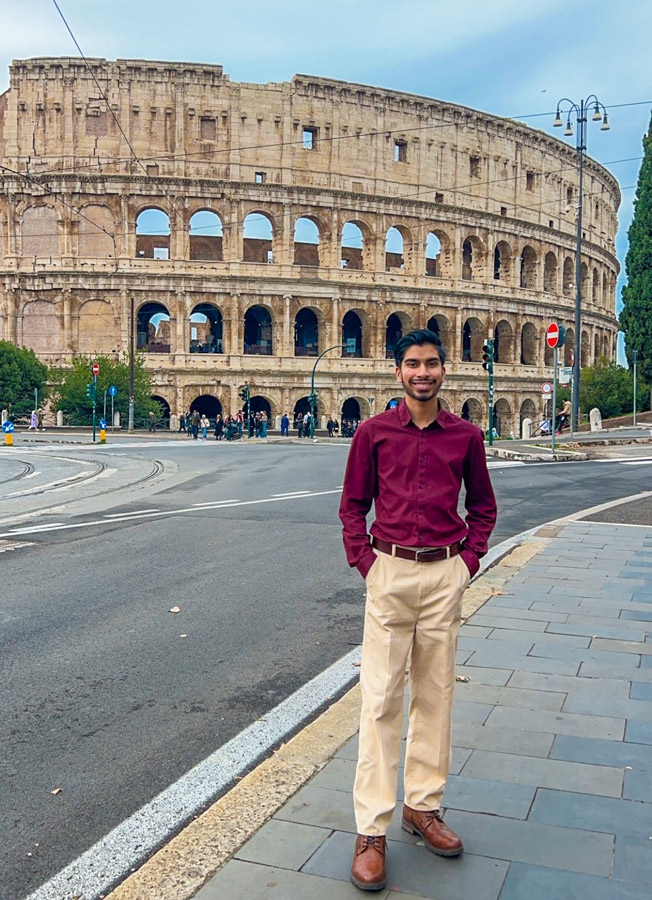For Aadhikar Sharma, medicine isn’t just a profession; it’s a calling that has been shaped by personal experiences, family influence, and a deep-seated desire to make a difference in underserved communities.
As a second-year medical student at Curtin University, Aadhikar is on a journey to not only become a doctor but to serve rural Australia where the need for healthcare professionals is profound.
Aadhikar’s interest in medicine began early, influenced by both personal experiences and family.
“I first felt the pull towards medicine because of the compassionate care I received from doctors,” he reflects.
“Their empathy and dedication left a mark on me. But it wasn’t until I shadowed doctors in Karratha, a rural town in Western Australia, that I truly understood the unique challenges and rewards of rural healthcare.”
He credits his older sister, a neurology resident in the United States, for mentoring him through the initial hurdles of choosing medicine as a career.
“Her commitment to the field showed me the level of dedication required. But it was my parents who have been my biggest supporters, encouraging me to embrace both the challenges and the rewards that come with studying medicine.”
Like many medical students, Aadhikar has faced his share of challenges. Balancing a demanding academic schedule with extracurricular commitments has been one of the most significant.
“I’m involved in four out of five clubs at Curtin Medical School, holding executive leadership roles in three,” he explains.
“Managing consistent meetings, events, and leadership responsibilities alongside medical school can be overwhelming.”
However, his ability to maintain strict time management through calendars and to-do lists has been key in overcoming these hurdles.
“I’ve learned to prioritise tasks and set clear goals. This process of learning has made me a better person, and I’ve grown from each challenge,” he says.
His leadership roles, though challenging, have also allowed him to develop skills that will serve him well as a future doctor.
“The ability to manage time, lead teams, and make decisions under pressure are all traits that I’ll carry into my medical career.”
When asked about his career aspirations, Aadhikar speaks with enthusiasm about the importance of general practice, particularly in rural areas.
“What attracts me to general practice and rural generalism is its diversity and continuity of care,” he says.
“I love the idea of building long-term relationships with patients, guiding them through different stages of life and understanding their unique perspectives.”
For Aadhikar, working in rural areas offers an added sense of purpose.
“There’s something incredibly fulfilling about serving communities where access to healthcare is limited,” he says.
“In Wongan Hills, where I did a rural placement, there was only one principal doctor servicing the entire town.
“The doctor carried enormous responsibility, but the impact he had on the community was undeniable.
“I saw first-hand how much of a difference a doctor can make in rural Australia, and that’s where I want to be.”
According to Aadhikar, empathy, patience, adaptability, and resilience are essential traits for any doctor, but especially for those practising in rural general practice.
“Empathy is critical. Patients need to feel supported and understood, particularly in rural areas where healthcare can often feel impersonal due to the lack of resources.”
He adds that adaptability is also key.
“In rural practice, you never know what’s going to walk through the door. You need to be prepared for anything and stay calm under pressure.”
He also stresses the importance of lifelong learning.
“Medicine is constantly evolving, and rural doctors need to stay at the forefront of medical advancements. But at the core, it’s about being there for your patients, every step of the way.”
Aadhikar recounts a memorable experience during his rural week in Wongan Hills, where he stayed with a host family.
“A family friend had been through numerous heart surgeries and was living with multiple pacemakers,” he explains.
“Despite her serious health conditions, she was incredibly resilient and spoke about how doctors had given her the strength to keep going.”
This encounter solidified Aadhikar’s decision to pursue a career in medicine.
“She talked about the challenges of accessing specialist care and the long waiting times.
“Her story gave me a deeper sense of purpose. I want to be the kind of doctor who reduces those barriers for rural patients.”
Aadhikar still keeps in touch with his host family from Wongan Hills.
“Her advice and perspective as a patient have stayed with me, and I hope to bring that same understanding and compassion to my future practice.”
Aadhikar has a clear vision of himself in the next decade.
“In 10 years, I see myself working as a consultant in a rural community, giving back to the area that shaped me,” he says.
“I want to focus on patient-centred care, ensuring that patients are involved in their treatment decisions and feel supported throughout their healthcare journey.”
He also hopes to be involved in medical education, helping to guide the next generation of doctors.
“There’s so much potential in rural healthcare, and I want to be part of that change, both through practising medicine and through teaching.”
In addition, Aadhikar is interested in medical research, particularly in the context of rural health amongst many domains.
“With so many advancements in medicine, I want to contribute to the field and help improve healthcare systems, especially for underserved populations.”
Aadhikar is grateful for the support he has received from the General Practice Students Network (GPSN).
“GPSN Curtin has been amazing. We’ve had so much support, both financially and through opportunities to attend national conferences,” he says.
“The experience has been invaluable, and I’m passionate about continuing to make change in the future.”
Outside of medicine, Aadhikar has a passion for travel.
“I love exploring new places and learning about different cultures. It helps me stay grounded and reminds me that life is about more than just work.”
As Aadhikar continues his medical studies, his commitment to rural general practice remains unwavering. His experiences, both personal and professional, have shaped him into a passionate future doctor ready to make a difference in rural Australia.
“I couldn’t imagine doing anything else,” he says. “Medicine is where I belong, and I’m excited about the future.”







